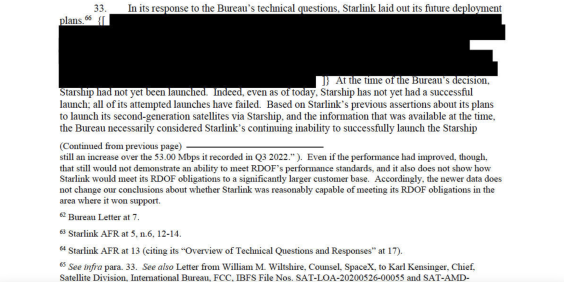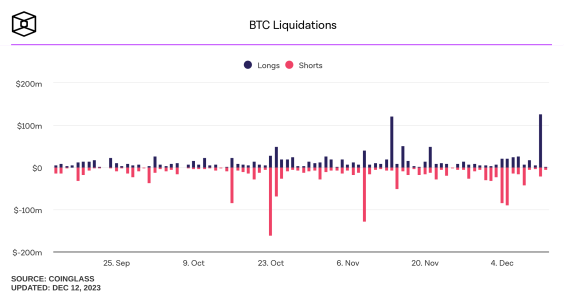This is not investment advice. The author has no position in any of the stocks mentioned. Wccftech.com has a disclosure and ethics policy.
In a highly anticipated move, Santa Clara chip giant Intel Corporation announced its latest strategy to diversify operations in order to cater to the expected demand increase for silicon products over the coming years. Intel's new strategy, officially dubbed as "IDM 2.0", centers around capacity expansion, and opening its doors for chip foundry customers who currently rely on a handful of companies such as the Taiwan Semiconductor Manufacturing Company (TSMC) and Samsung Electronics' foundry arm Samsung Foundry for their chip needs.
The highlight of the deal is a $20 billion investment in Ocotillo, Arizona, dedicated to expanding the company's current capacity by adding two new facilities that will serve both Intel's customers and future foundry partners. This particular announcement comes as both TSMC and Samsung Electronics turn to the state for their facilities, with TSMC already having committed and Samsung evaluating its options.
TSMC's Shares Drop In Taiwan As Investors Weigh In Consequences of Intel's Announcement
The biggest immediate impact of Intel's announcement was on TSMC's share price. However, as opposed to a drastic drop as some would have expected, TSMC managed to lose only ~4% of its share price value a couple of hours after Intel chief Mr. Pat Gelsinger's webcast.
However, the share price drop wasn't the strongest standout point for TSMC in Taiwan. Instead, it was the number of shares that were unloaded, which, according to Taipei Times, stood at 115 million TSMC shares changing hands during the day. TSMC, which had closed at NT$ 593 on Tuesday, dropped NT$ 571 yesterday as investors dumped its shares and recovered a small fraction of its losses by closing at NT$ 576.
The striking share turnover was only a culmination of foreign investor selling. Over the course of March, foreign investors have sold roughly 157 million TSMC shares; an amount that pales when compared to the 64 million shares sold in late February. The Taiwanese fab has also lost 10% of its value since late February.
Intel's shares have lost all the gains that they made during the early hours of trading today and are now lower than the levels before its CEO's announcement.

Intel Corporation's 7nm Ponte Vecchio graphics processing unit (GPU) was correctly labeled by Wccftech in January this year. Intel showed a detailed graphic of the GPU as part of its announcement yesterday.
Analysts, Academics Cautiously Optimistic About Intel's Foundry Plans
The first question that comes to mind after Intel's announcement is what impact will it have on TSMC. The Taiwanese fab commands the lion's share of the global contract chip manufacturing industry right now owing to its successive process node innovation and a steady investment into the latest manufacturing technology.
Analysts and academics across Taiwan are divided on the matter. Gao Qinquan, a chip industry veteran believes that by operating contact chip manufacturing facilities in the U.S., Intel will be able to secure subsidies from the American government and allow it to easily procure extreme ultraviolet (EUV) lithography machines. Additionally, Intel's ability to excel in its plans will depend on the development of the 5nm and 3nm process nodes.
These will provide the company with technological advantages and the primary recourse for Taiwanese firms as a response are strong management capabilities. Mr. Gao did not highlight what he believes these capabilities are.
Yang Rui, an academicbelieves that Intel's decision is "against the trend" since the primary focus of pure-play foundries such as TSMC is manufacturing customer chips. Chu Xiangsheng, Chairman of South China Investment Consulting, Cai Mingyan, Chairman of Qunyi Investment Consulting, and Huang Wenqing, Deputy General Manager of Taishin Investment Consulting agree with Mr. Gao and believe that the path ahead for TSMC will be determined by Intel's yield for its manufacturing processes - and if the company is successful, then TSMC will face stiff competition.
According to Eric Chen, a managing partner at Cornucopia Capital Partner Ltd., Intel's announcement is "bad news" for TSMC, but the extent of its impact on the Taiwanese firm will depend on Intel's capacity and resource allocation. Additionally, and crucially for Intel, Chen is of the view that Apple Inc, NVIDIA Corporation and Advanced Micro Devices, Inc - some of the biggest U.S. chip designers - are unlikely to knock at Intel's doors for their orders due to competition and pending litigation.
Supply chain unpredictability for Intel's products is believed to have played a role in spurring Apple's efforts towards developing its own processors for the Mac lineups; processors which are manufactured by TSMC.

The next-generation of extreme ultraviolet lithography (EUV) machines will use larger lens apertures to focus more light on wafers for printing semiconductors. This brings its own unique sets of problems (with their solutions shown above) since the higher magnification results in 'half' patterns being printed. Image: ASML
EUV Machines To Play Crucial Role In Contract Chip Manufacturing Rivalry
Isiah Research figures that the competition between Intel and TSMC will boil down to the number of EUV machines they can get their hands on, Intel's ability to secure orders and process node advantages. The firm's definition of process nodes is a bit shaky as it holds Intel's 7nm node equal to TSMC's 5nm process - while others have speculated that Intel's 7nm might very well be equal to TSMC's 3nm. Intel uses EUV throughout the 7nm stack, while TSMC is limited in the number of layers that use the technology.
The research firm's figures suggest that in 2021 and 2022, TSMC will have acquired 40 - 50 EUV machines while Intel will have procured 13 - 20 machines. Estimates based on Dutch company ASML, who is the sole supplier of the machines, suggest that TSMC had anywhere in between 30 - 63 EUV scanners by the end of last year.
However, given Intel's extensive EUV application, the chipmaker is likely to gain a serious advantage over TSMC here. The complexities of chip fabrication require smaller wavelengths of light as transistor sizes are shrunk. Current EUV scanners use lenses with a 0.33 numerical aperture (NA - or the width of the lens that lets light pass through), but as chipmakers reduce node sizes from 5nm to 3nm or 2nm, they will have to use machines with 0.55 NA lenses.
Given that Intel's 7nm products use EUV across the board, the company is likely to require access to these machines sooner than TSMC will. So even as TSMC currently leads in machine inventory, Intel's future inventory could render this advantage moot. Mr. Gelsinger's belief that Intel aims for "leadership by 2024" seems to follow this timeline as well.
TSMC is expected to commence 3nm production next year while Intel's 7nm products are slated to enter the market in 2023. Therefore, a couple of years out in the future, the competition between the pair will depend on access to second-generation EUV machines - with yields playing a crucial role.

Intel's Ocotillo campus (pictured above) houses its Fab 42 which manufactures processors on the company's 10nm process node. Intel's $20 billion investment will build two facilities in the Ocotillo campus. Image: Intel Corporation
Intel Garners Widespread Support For Its New Manufacturing and Foundry Plans
Huang Chongren of Taiwan's Power Semiconductor Manufacturing Co. is of the opinion that wage and productivity differences between American and Taiwanese engineers will play a crucial role in determining the outcome of the rivalry between Intel and TSMC. According to him, the salary of a single American engineer is equivalent to the salaries of six Taiwanese engineers, with a Taiwanese engineer being 75% as efficient as his U.S. counterpart.
Subsequently, Mr. Huang believes that American and European chipmakers will find it tough to compete with Taiwanese firms especially when it comes to turning a profit.
As far as Intel goes, the company has been able to secure no less than 18 supporting statements for its Integrated Foundry Services (IFS) plan. These statements range from ASML chief who promises "to support Intel with cutting-edge EUV tools", to Qualcomm who looks "forward to partnering with Intel in the future", and Google and Microsoft chiefs, with the latter being "energized"by the IDM 2.0 plan.













